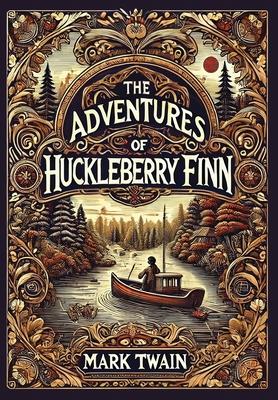On the run from a violent father and a stifling life, young Huck Finn finds unexpected freedom on a raft drifting down the mighty Mississippi. Alongside Jim, an escaped slave with dreams of his own, Huck dives into a world brimming with conmen, mysteries, and life-or-death choices. As they navigate swirling currents and treacherous shores, Huck begins to question everything he thought he knew about friendship, courage, and justice. Together, they push against the boundaries of society, finding moments of truth-and danger-at every turn.
The Adventures of Huckleberry Finn stands as a groundbreaking work in American literature, challenging social norms and exposing the harsh realities of slavery and racism in 19th-century America. Mark Twain's vivid depiction of life along the Mississippi River brings to light the injustices of the time, using Huck's innocent perspective to question accepted values. The book's use of vernacular speech and authentic regional dialects marked a revolutionary shift in literary style, capturing the voices of ordinary people. Twain's novel continues to provoke thought and debate, illuminating the complexities of freedom, morality, and human connection in a divided society.
